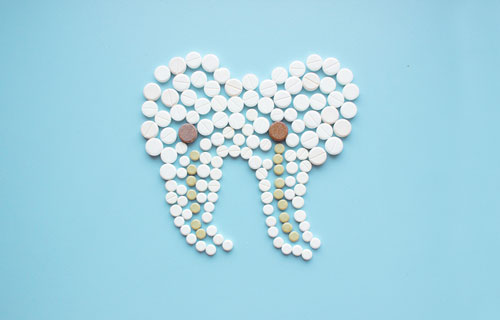What’s the biggest public health disaster in American history?
The polio epidemic is a good guess. It crippled more than 300,000 and killed about 20,000 in the U.S. before a vaccine was developed in the 1950s.[1]
AIDS took a terrible toll, too. Nearly 700,000 people have died from the disease in the U.S. since the 1980s.[2]
The Spanish flu outbreak of 1918 is less known. But it was extremely deadly, killing more than half a million Americans.[3]
Many people don’t realize that we’re facing a public health crisis right now that is on the same scale as these historic tragedies.
Since 1999, more than 400,000 Americans have died from opioid overdoses. That number grows by the hour.
An average of 130 of us die every day from opioids. And every day, 1,000 Americans are rushed to the hospital after overdosing. More than 2 million people in the U.S. are addicted to opioids.[4] [5]
How could this happen? Many people blame Big Pharma. Others say it’s the fault of doctors.
New research shows there’s another culprit.
The study was published in the American Journal of Preventive Medicine. It looked at some 550,000 dental visits.
Researchers found that dental opioid prescribing is out of control.
Dentists often prescribe opioids when safer, non-addictive pain relievers would work just as well.
The study found that more than half the time dentists prescribe opioids they give the patients far more pills than they need. And nearly a third of the time they prescribe an opioid that is more powerful than needed.
This is a prescription for addiction.
The new study confirms 2016 findings published in the Journal of the American Medical Association. It found that doctors appear to be getting the message about the opioid crisis. They are prescribing fewer of the addictive drugs.[6]
But dentists in the U.S. were prescribing more opioids than ever. The study found that American dentists prescribe 37 times more of them per patient than their counterparts in England.
The Best Ways to Treat Dental Pain
If you get a tooth pulled or have some other painful dental procedure, avoid opioid painkillers.
If you do take them, stop after a maximum of three days. Otherwise you risk addiction.
Some studies show that a combination of ibuprofen and acetaminophen actually works better than opioids following dental surgery.[7]
Another option is Exparel (bupivacaine). It’s a long-lasting non-addicting injection, that numbs the surgical site, suppressing pain for up to three days. Ask your dentist about it.
Over-the-counter topical oral anesthetics can relieve dental pain for hours at a time. Anbesol and Orajel are two common brands.
Many people also get relief from these natural remedies:
- Peppermint oil soothes pain and reduces inflammation. Apply it directly to your teeth or gums with a cotton ball.
- Clove oil. Studies show this is a strong pain reliever. You can buy clove essential oil, or boil six whole cloves in 12 ounces of water. Apply with a swab or cotton ball.
- Heat or cold. Simply placing an ice pack or heating pad against your cheek in the affected area can provide relief. Alternate the two in 15-minute intervals, with 15-minute breaks in between. Finish with the ice pack.
The opioid crisis is one of the darkest chapters in the history of the American medical profession. Make sure that you don’t become a victim.
Editor’s Note: Unlike much of the mainstream media, we don’t accept advertising from Big Pharma. That’s why you can count on us for unbiased medical information. Our only motivation is your good health. Subscribe to our newsletter, Independent Healing. Each month it brings you important health news you won’t find anywhere else. To subscribe, go HERE.
Related Articles
How to Find Out If Your Doctor Is Taking Big Pharma Bribes
This Safe Opioid ‘Alternative’ Is Fake News
Pain Drugs Tied
to Suicidal Behavior?
Like this Article? Forward this article here or Share on Facebook.
[1]https://ourworldindata.org/polio
[2]https://en.wikipedia.org/wiki/HIV/AIDS_in_the_United_States
[3]https://www.cdc.gov/flu/pandemic-resources/1918-pandemic-h1n1.html
[4]https://en.wikipedia.org/wiki/Opioid_epidemic_in_the_United_States
[5]https://www.cnn.com/2017/09/18/health/opioid-crisis-fast-facts/index.html
[6] https://jamanetwork.com/journals/jamanetworkopen/fullarticle/2734067
[7]https://www.goodrx.com/blog/is-it-safe-to-take-tylenol-acetaminophen-with-advil-or-motrin-ibuprofen/

